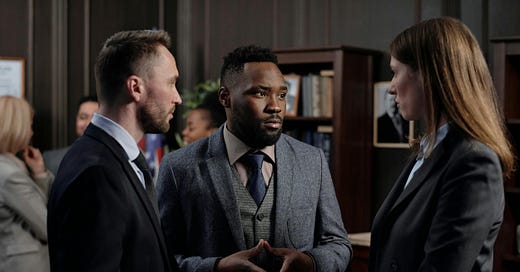Whether all children or just sons are an inheritance from God
(and why this is even good news for those who don’t have kids)
Many contemporary English translations of Psalm 127 say that children are a heritage from the LORD (v. 3) and are like arrows in the hands of a warrior (v. 4). Therefore, if a man has a quiver full of these arrows, he is blessed (v. 5). Translations such as the NET, however, use the word “sons,” not the gender-inclusive “children.” Which is it, and why? What sense does it make in our world?
My church teaching partner Lindsey and I discussed this passage with our two Bible Fellowship classes. Here is how we answered these essential questions:
The Hebrew word for children is בֵּן (ben), which is masculine plural, so most literally “sons.” Likewise, the Septuagint translates the word with the masculine plural “υἱοὶ.” Why would the text specify that male children are an inheritance? I have two daughters I consider just as much a blessing as my three sons, so why would the psalmist say this?
The Hebrew scriptures primarily view inheritance as property within the promised land (Num. 26:53; Jos. 11:23; Jdg. 2:6). Without children, the inheritance would be lost. Numbers 27:1-11 and 36:1-12 gave Israelite women the right to inherit if a father died without a male heir, but make no mistake: the ancient Near East was a man’s world, and any daughter who inherited property would likely have more trouble defending the property and her family’s honor than sons would.
Psalm 127 specifies that sons are like arrows in the hands of a warrior because they could “contend with opponents in court” (NIV) or, more literally, the “city gate” (שַׁ֫עַר (sha.ar). Ancient city gates were large stone walls built for protection. Cities needed young men to act as soldiers, preventing enemies from breaching the gate.
But more than this, the gate was the place for business deals and legal matters (Dt. 17:5; 21:19; 22:15, 24; 25:7; Jos. 20:4, Ruth 4:1; Isa 29:21; Amos 5:12). It was Wall Street and the courthouse rolled into one, and it was the public square where men discussed important news (e.g. 1 Sam. 4:12-18). If you had many sons, you had many potential defenders (think “attorney” or “business advocate”) when they grew up. Your army of advocates ensured you wouldn’t be deprived of justice.
making sense of this in our world …
We live in a different world. For the past year, my widowed mother’s health has rapidly declined following a long fight with cancer that included surgery, chemotherapy, and radiation. Since March, we have shepherded her in and out of the hospital, one assisted living community, and a second that provides more comprehensive care. We’ve had to sell the house where I was raised and where my mother lived for over fifty years, deal with Medicare and other agencies, and face the unexpectedly mammoth task of getting my mother on Medicaid.
Throughout all this, my wife Kristen has been my mom’s “defender at the city gate.” She’s done an excellent job – much better than my brothers and I could have done. She is simply better at the required tasks in a world where my larger size does not matter and where laws don’t prevent my wife from taking on the job. My role in my mom’s care has primarily been visiting her daily and taking her to doctor appointments – the nurturing kind of activities that some would think belong to the other gender’s “role.” Both male and female children are “an inheritance” from the LORD in our culture. Whether your son or daughter can better defend you at the city gate depends on many factors, but gender isn’t often one of them.
There’s a more significant application for Christians, though, and neither singles nor childless adults are left out. Christ has formed a new family.
Whoever does God’s will is my brother and sister and mother.” - Mark 3:35
Jesus demonstrated this one final time on the cross:
Near the cross of Jesus stood his mother, his mother’s sister, Mary the wife of Clopas, and Mary Magdalene. When Jesus saw his mother there, and the disciple whom he loved standing nearby, he said to her, “Woman, here is your son,” and to the disciple, “Here is your mother.” From that time on, this disciple took her into his home. – John 19:25-27
We commonly suppose that Jesus was gallantly making sure someone would care for his mom, and I’m sure this is true. But Jesus had multiple sisters and four brothers (Mark 6:3), two of whom would become leaders in the church, James and Jude. Mary did not lack potential caregivers. Jesus, though, chooses two disciples who are unrelated by blood to show us, yet again, that our inheritance involves everyone united by Christ into the family of God. We are a part of each other’s inheritance. The LORD is building the house, and God does not labor in vain.





Love this, Bobby
Jesus’s comment in Mark 35 makes me teary. I guess it’s related to studying Mary as a disciple this year. She was both mom and disciple, a picture of the family of God that we are all invited to. Thanks for the post, Bobby!